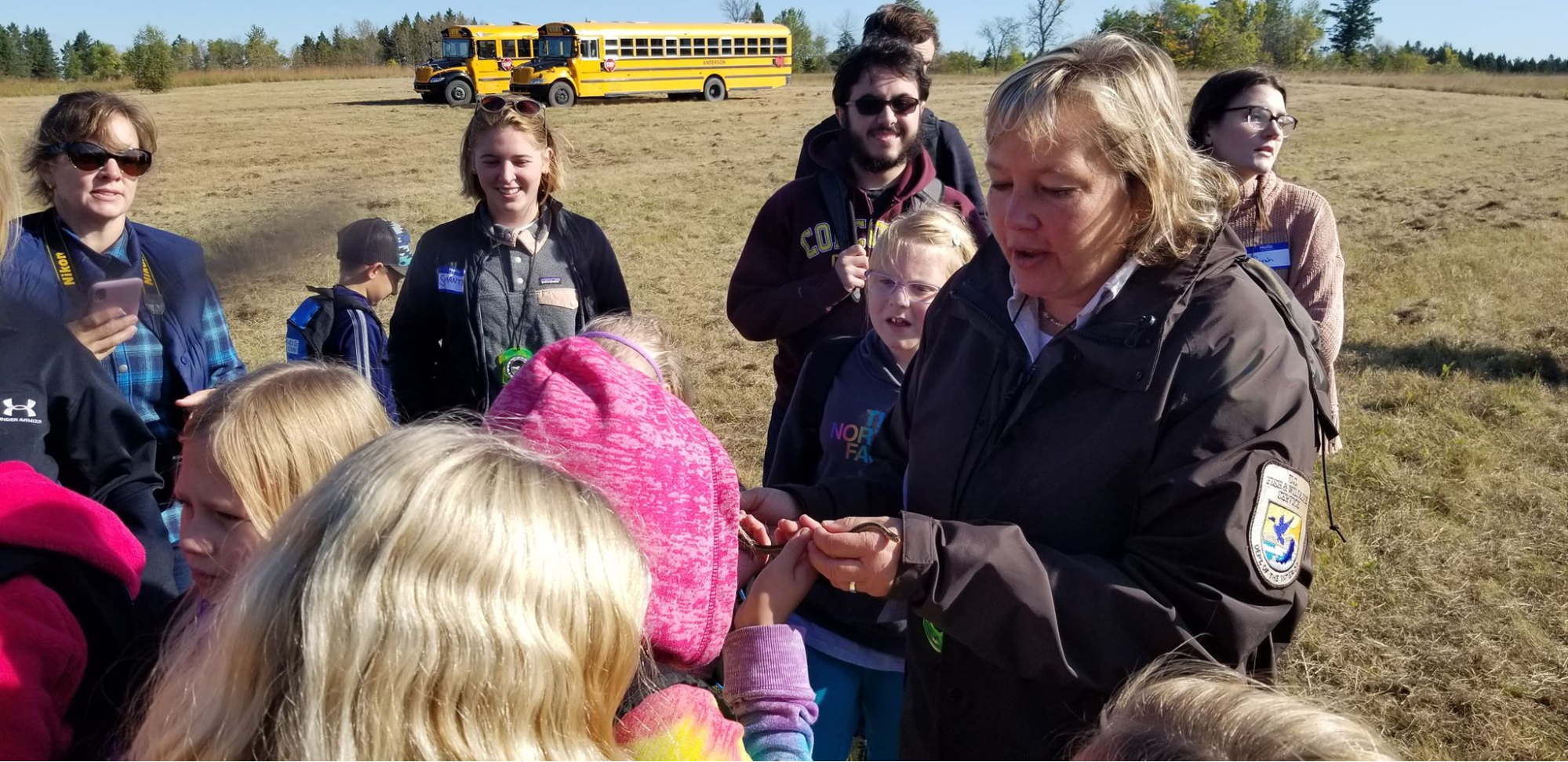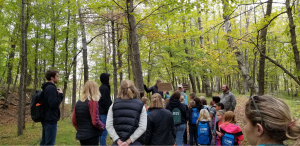Students in the Environmental Policy-Politics class learn while helping younger students learn on the Tamarac Wildlife Refuge on Wednesday, September 25. They shadowed volunteers who taught third-grade students different topics about the environment. The students will return to the refuge Wednesday, Oct. 2 and Thursday, Oct.3 to conduct their own lessons about the environment with the younger students.
Ellie Devos, a senior in the class, discussed the activities that are taught at the refuge. “The topics included identifying tree species, learning about decomposers, journaling about nature mindfulness and observation, compass lessons, looking for animal cache sites, and talking about animals’ preparation processes for winter,” she said.
Dr. Kenneth Foster has led these trips for the past four or five years. He discussed how the trip helps people have more knowledge of environmental topics and the work done at the refuge.
Dr. Foster explained the purpose of the Tamarac Wildlife Refuge Trip for students. “This trip enables the students to learn about a national wildlife refuge and engage in education because education is important with environmental issues,” he said.
The Environmental Policy-Politics class is a PEAK class, which allows students to gain a deeper understanding of the issues they are studying outside of the classroom. Dr. Foster discussed some of the main takeaways he wanted his students to have when they left this refuge.
“The students will have a new appreciation for how important work with younger generations. It’ll give them a new appreciation for giving kids educational experiences out in nature. I hope that they see the role these protected places can play,” Foster said.
Signe Johnson, another senior in the class talked about how well the third-grade students took in the knowledge about the environment and how attentive they were learning it. The students were also respectful of the environment when interacting with nature and were cautious in how they interacted with nature.
“Young kids care about the environment and scientific things, including how things decompose and how to use a compass,” Johnson said.
Foster, Devos, and Johnson discussed why the Tamarac Wildlife Refuge and places like it are important for other students to know about. Many students may not know of refuges and how significant it can be to be a part of nature.
“Cobbers should know about the value of exploring the nonhuman world in your own backyard, observing and learning about the diversity and lifestyles of wildlife, and exemplifying respect and care for the nonhuman world to children,” Devos said.
Johnson talked about how Cobbers can benefit from going on this trip. “It is important to have places for people to engage in the natural and people should be apart of. This trip applies to many majors. It’s beneficial for all Concordia students to engage themselves in different learning experiences because I think its the definition of what it means to B.R.E.W or become responsibly engaged in the world,” she said.
Dr. Foster, Devos and Johnson emphasized the importance of being in the environment and being around nature because it plays an important role in peoples’ lives. If students wish to be more involved they can go to the Tamarac Wildlife Refuge to be a part of educating younger generations.
“This refuge exists and is not that far away. It’s a great place to do some walking and fishing,” Foster said.
If students want to engage in the environment, they can do so in many ways. A few ideas include taking classes, such as Dr. Foster’s PEAK class, to educate themselves on the environment, be out in nature and experience the environment, and help educate others on the importance of nature.


